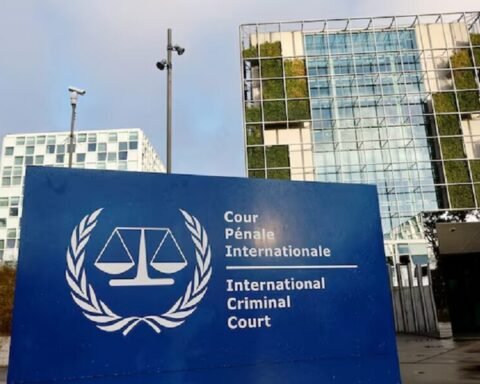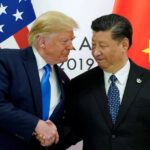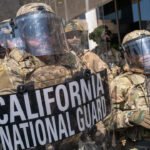President Donald Trump has ordered the deployment of 700 active-duty United States Marines and an additional 2,000 National Guard troops to Los Angeles to assist in controlling widespread protests triggered by recent immigration raids.
This marks the first time in six decades that active-duty military forces have been used domestically to back the National Guard amid civil unrest.
The protests began after Immigration and Customs Enforcement (ICE) conducted a series of enforcement operations resulting in the detention of numerous individuals suspected of immigration violations. These actions have inflamed tensions in diverse communities throughout the city, leading to calls for immigration reform and increased protections for undocumented residents.
California Governor Gavin Newsom, sharply criticizing the federal response, labeled the use of Marines in this context as “deranged” and an abuse of federal authority. Governor Newsom has taken legal action by suing the Trump administration, asserting that deploying active-duty troops domestically violates the Posse Comitatus Act, which limits the use of federal military personnel in law enforcement roles, and infringes on California’s state sovereignty.
The sudden arrival of the Marines caught local authorities off guard. Los Angeles Police Chief Jim McDonnell expressed concerns about the challenges of coordinating military forces with city police operations, describing it as a “significant logistical and operational hurdle.” Los Angeles Mayor Karen Bass also condemned the federal deployment, accusing it of being a “deliberate attempt to sow disorder and chaos” in a city already under strain.
Also Read; Russia, North Korea Resume World’s Longest Train Route
Historically, the deployment of federal troops on U.S. soil to manage domestic disturbances is extremely rare. The last major instance was during the Civil Rights Movement and related urban unrest in the 1960s when federal troops were sent to enforce desegregation and maintain order. This precedent raises critical questions about the appropriate limits of military intervention in civilian affairs and the balance between national security and protecting citizens’ civil rights.
The unfolding situation in Los Angeles underscores broader national debates surrounding immigration policy, the militarization of law enforcement agencies, and the delicate balance of power between federal and state governments.







